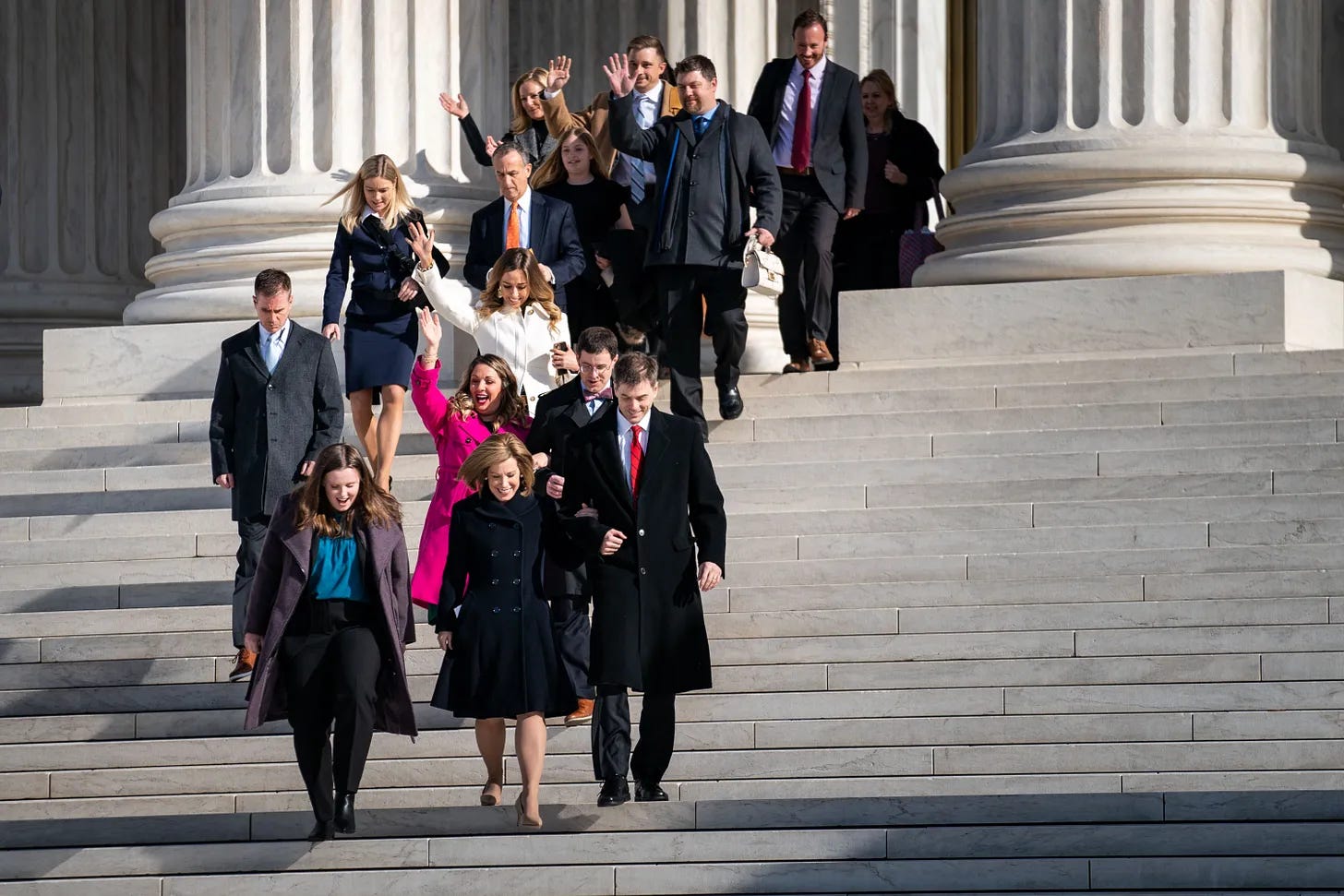Education Law in the Post-Affirmative Action Era
For FAIR’s Substack, FAIR network attorney Daniel J. Rhoads writes about the future of education law in the post-affirmative action era.
Ironically, the colorblind aspiration that the Court has endorsed is practically unspeakable in some academic circles. We at FAIR have seen public school lessons where statements like, “There’s only one human race,” and concepts including “Meritocracy Myth” are taught to be “covert white supremacy.” The same lessons use the term “Whiteness” as a pejorative. Instruction of that type seems to offend the principles laid out in SFFA.
At some point, legal questions dissolve into policy disputes that are not appropriate for litigation. “May a high school require history teachers to assign ‘anti-racist’ readings?” is importantly distinct from the question of whether it should do so. However, the fundamental issue that SFFA and 303 Creative address, whether students can be separated into racial affinity groups in order to study such readings, seems more clearly unconstitutional.
The Fracturing is Necessary
For FAIR’s Substack, FAIR in the Arts Fellow Michelle Pollino writes about the current state of the LGBT movement, and why the way forward necessitates finding compassion within ourselves to forgive our past transgressions.
It is madness when we believe something to be true when it is not. But it is also very human to search for and construct a narrative inside us that explains why we are the way we are. Something that helps us fit in because we all long for connection. But what if what feeds this narrative has been placed there by a culture that has gone awry? It is this very strain of madness that I see plaguing society, and young gay women, today. What was once a call coming from outside the house is now coming from within. Rather than defying puritanical edicts from the far-right, our movement is swallowing itself whole, devouring its own in an attempt to be inclusive. It’s even eating away at the very fabric of our flag. We’ve somehow embraced what those who oppose gayness writ large have always been telling us: there’s something wrong within us that needs fixing.
The Supreme Court Case That Exemplifies Our Culture War Blindness
For Persuasion, FAIR Board member Angel Eduardo writes about a recent Supreme Court case and why political tribalism prevents us from seeing free speech issues clearly.
I strongly disagree with Smith’s views on same-sex marriage. But the Constitution or constitutional law can’t work on the basis of my or anyone else’s preferences or opinions on such issues. The thing about principles is that they must be consistent, and that sometimes means swallowing hard pills. I recognize that Smith has a right to her views, no matter how backward I might find them—and I know that protecting her right to those views also protects my right to my own.
A Racist Smear. A Tarnished Career. And the Suicide of Richard Bilkszto.
For The Free Press, Rupa Subramanya and Ari Blaff write about the tragic suicide of Richard Bilkszto, a beloved educator who was branded as a bigot in a series of DEI sessions.
Richard Bilkszto was, above all, an educator, his friends and colleagues said. He didn’t have a partner or children. But he cared deeply about his students, and he was worried about the impact of the new identity-focused politics on the classroom, even though he was gay and, in an interview with The Free Press a few months before his death, voiced concern about transgender students being bullied.
“To me, being gay is a part of me,” Bilkszto said in the interview. “It’s not my identity. It’s not something I choose to put out there all the time. As a matter of fact, if people were having a conversation about, you know, ‘I don’t think there should be gay marriage,’ I’m not even offended by that if people are making rational arguments—as long as they’re not being homophobic.”
He added: “It’s about the whole cancelling and not allowing for free speech, free debate, and all those types of things. I’m a big free speech proponent.”
How can we have a proper debate when we no longer speak the same language?
For the Evening Standard, Richard Dawkins writes about how hypersensitivity and accusations of ‘hate’ risk leading us into an Orwellian future.
I just said “a reasonable speaker of the English language”, and maybe here lies the key: language. If we want a fruitful argument, we’d better speak the same language. In today’s overheated sparring over sex and gender, both sides may appear to be speaking English, but is it the same English? Does “hate” mean to you what “hate” means to everyone else?
Media ignores Muslim killing of gay man because it doesn’t fit narrative
For the New York Post, Douglass Murray writes about the killing of O’Shae Sibley and the media’s response.
We should be able to face the complexity of the world. “Reality,” as we used to call it. Nobody should be murdered because of who they are. But nor should a murderer be given cover because of who they are.… The reality is that life is more complex than the lies we have been telling ourselves in recent years. America shouldn’t be divided by groups. And evil shouldn’t be divided by groups either.
One Sentence Does Not Define a Curriculum
For The New York Times, John McWhorter writes about the recent controversy over Florida’s African American History Standards.
The passage is certainly ungainly, and it bears editing at least, and probably deletion. My colleague Jamelle Bouie has usefully outlined that any real evidence of slaves “benefiting” from their work skills took place after emancipation, not during it. Moreover, the idea of any kind of benefit gained amid the pitiless horror of slavery is highly strained, creative and almost certainly unnecessary in a curriculum instructing students about this stain on the nation’s past.
However, from the tone of coverage of this passage, one might suppose that it was a central plank in the curriculum. Instead, it was but one passage amid hundreds of others, which constitute an almost exhaustive coverage of the gruesomeness of slavery in the United States. Taken together, they are such an informed recitation of our racist past that it is almost surprising DeSantis would approve them.
FAIR News Podcast
For audio versions of our FAIR News and FAIR Weekly Roundup newsletters, subscribe and listen to FAIR News Weekly on Apple Podcasts, Spotify, Google Podcasts, or via RSS feed.
Join the FAIR Community
Join us, and become a member of FAIR.
Become a FAIR volunteer, or join a FAIR chapter.
Take the Pro-Human Pledge and help promote a common culture based on fairness, understanding, and humanity.
Sign-up for a Welcome to FAIR Zoom information session to learn more about our mission.
Share your reviews and incident reports on our FAIR Transparency website.












